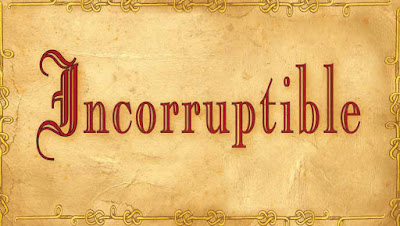Eschatology is a popular topic for every radio and television preacher, for reams of books, and endless debates on every internet platform. And it is a topic which rarely produces healthy or edifying conversation. Why? Because it is titillating. The popular preachers make a lot of money by making predictions, and the more wild-eyed and frightening the more money they make.
How do these discussions end up in such a theological rut? Well, in addition to the excitement that comes from particular interpretations, there is just bad exegesis in most cases. Biblical passages are wrenched out of context to apply to the time of Jesus's return as if there were no other events in the two-thousand years (so far) in between. And just on the basis of assumptions, not because of any reasoning or hermeneutical principles. If you get into a conversation about Matthew 24 and mention that Jesus applies it to the generation to which He was speaking (verse 34), you will be shouted down. Or if you point to His words, "the Gospel will be proclaimed throughout the whole world" (verse 14) and compare them to the words of Paul, "the hope of the Gospel that you heard, which has been proclaimed in all creation under Heaven" (Colossians 1:23), you will be decried as feeble-minded.
Then other passages are simply not allowed into the discussion. One of which is my subject here.
In Hebrews 1:13, that writer quotes from prehistory the words of the Father to the Son from the intra-Trinitarian covenant, "Sit at My right hand until I make your enemies a footstool for your feet." The quote is from Psalm 110:1, and is repeated in Hebrews 10:13. It is also found quoted in several other places in the New Testament. All refer to the awaited glory of Jesus before His return.
What are some of those enemies that the Father shall subdue for the Glory of the Son? Paul gives us some prominent examples.
Paul quotes the same verse indirectly, Psalm 110:1, in I Corinthians 15:25, and then gives the last enemy in verse 26: "He must reign until He has put all enemies under His feet. The last enemy to be destroyed is death." So death will be defeated as the last enemy before the return of Jesus. That completely eliminates the entire timeline of premillennialism, especially the dispensationalist variety.
But Paul gives us another case which I find even sweeter to my soul.
"Lest you be wise in your own sight, I do not want you to be unaware of this mystery, brothers: a partial hardening has come upon Israel, until the fullness of the Gentiles has come in. And in this way, all Israel will be saved, as it is written, 'The Deliverer will come from Zion, and He will banish ungodliness from Jacob; and this will be My covenant with them, when I take away their sins.' As regards the Gospel, they are enemies for your sake. But as regards elections, they are beloved for the sake of their forefathers" (Romans 11:25-28). At some point near the end of history, Paul tells us, the fullness, the majority, of Gentiles will have been converted, and then the blindness which was placed on the Jews will be lifted, so that they will be converted en masse to the Messiah whom they had rejected.
If Jesus will return to an overwhelmingly converted world, how does that allow for the violence and persecution and unbelief described by the scary eschatology crowd? I see the two things as utterly incompatible, which is why I reject that scary eschatology.




